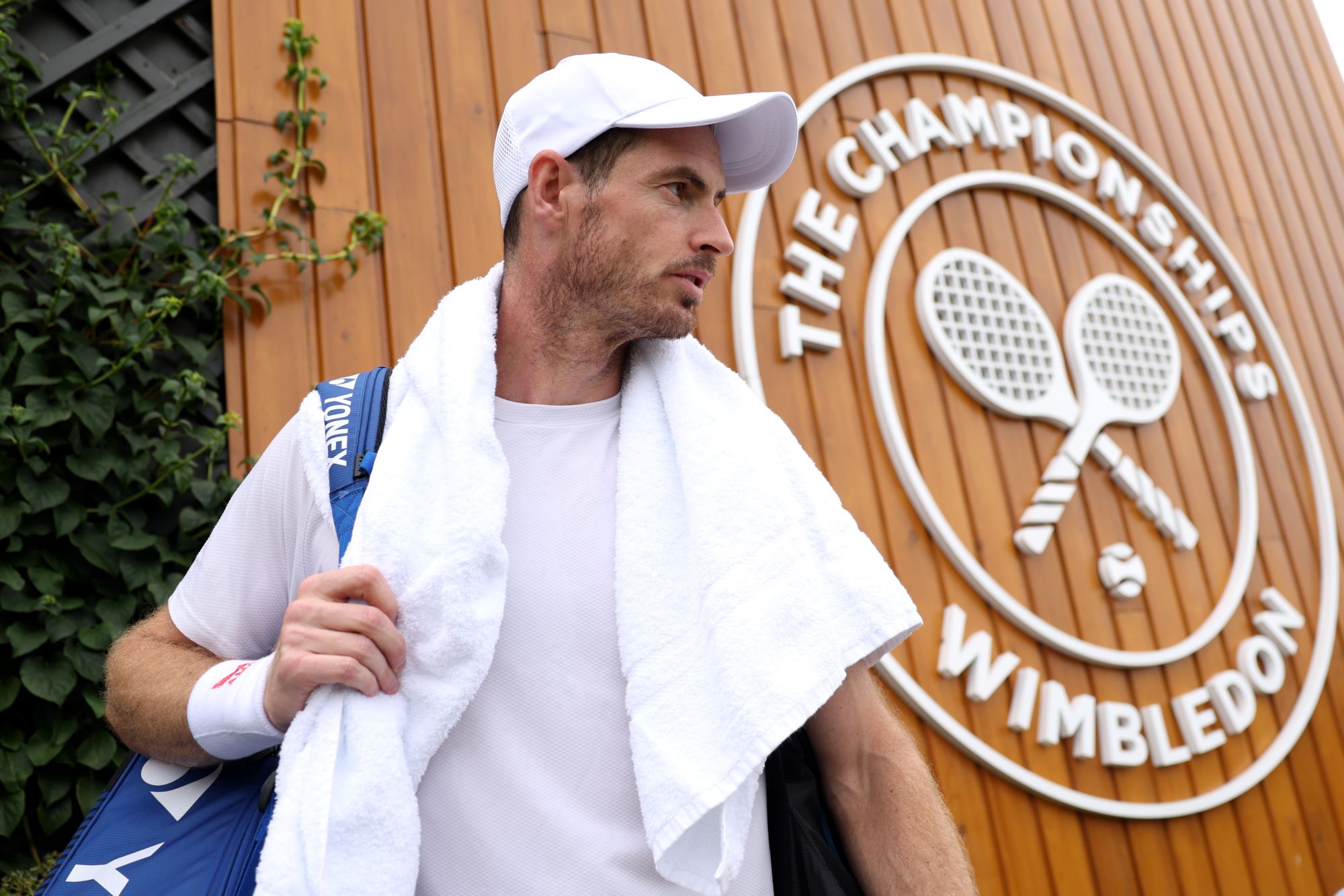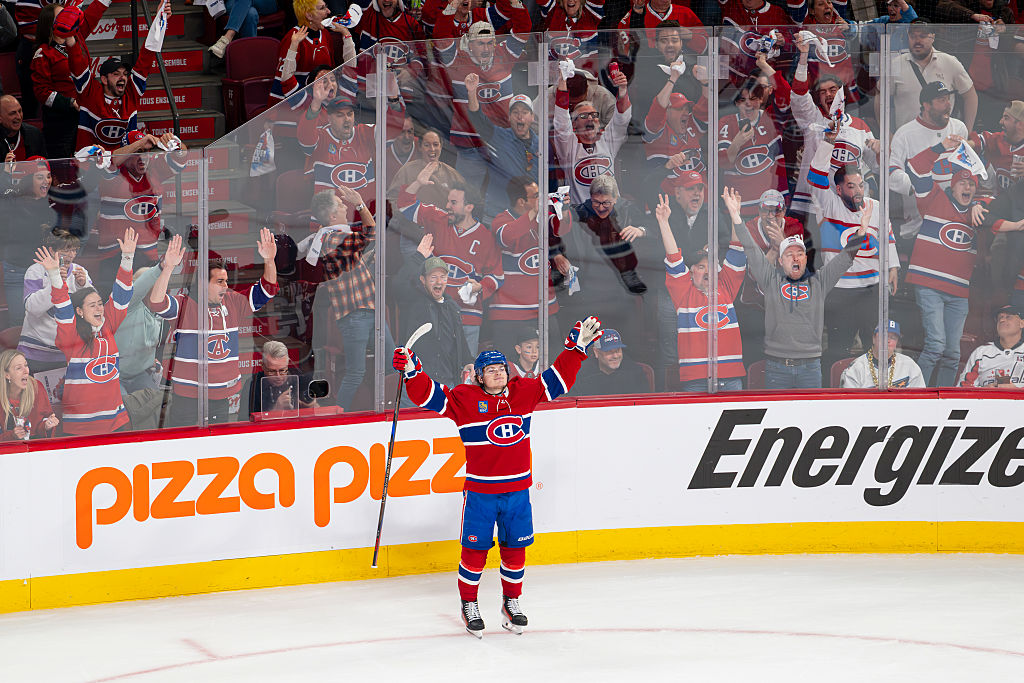Andy Murray, who is retiring from tennis after the Paris Olympics, announced on Tuesday morning that he's pulling out of Wimbledon's singles draw. The culprit is—surprise, surprise—an injury. A recent surgical procedure on his ailing back left him without sufficient time to prepare for the agony of playing singles, though he will compete in the tournament's doubles draw. Wimbledon is of course the site of Murray's most famous triumph, where in 2013 the Scot became the first male British player to win the tournament in 77 years. The end of this remarkable career won't get the swan song it deserved in front of the fans who loved him most, at least not in the singles format Murray so mastered.
What is there even left to say about Murray? The career eulogies have been written already, and his greatest moments are already the stuff of legend. He is grumpy. He is preternaturally talented. He is the hardest of hard workers. He won three majors and once ascended to the No. 1 ranking despite his career coinciding with Roger Federer, Rafael Nadal, and Novak Djokovic. He was good enough to convince the tennis world to call the dominant group the "Big Four" for a while; the past few years have seen a reversion to "Big Three." The right people will remember that the first nickname was correct.
Maybe what I can talk about is the second act of Murray’s career, after he stopped being Andy Fucking Murray and became a guy with a resurfaced hip stubbornly trying to get his hands on more metal than what he touched while catching his breath. As he’s aged and his body has further broken down, Murray’s last few years have been a bit of a disaster. He had such monumental success during his prime in part because he ran like a rabbit despite appearing to expend the effort of a bellowing hippo—he’d give little cries of “ah!” when an opponent hit a drop shot, like he’d been kicked in the nuts, but you knew he was getting to that ball. Murray’s roadrunning worked because he was willing to play a violently attritional style and his body could handle it. During his comeback, he stayed true to that style, but was a full step slower. The grunts and groans continued to fill the court, but the product wasn't the same. He hung in rallies for 10 shots instead of 15, and missed those on-the-run backhand passing shots by a couple feet instead of slotting them into the neck of the service box.
The obvious countermeasure was for Murray to hit harder. He had always been a bit passive for the casual fan’s liking—despite a two-handed backhand that could shatter boulders, he seldom hit it down the line. At his peak, he could get away with relatively unassertive play, since his legs could negate whatever aggression his opponent mustered. Now, with his defensive working at 70 or so percent, he needed to hit those backhands down the line and crush some more forehands to avoid having to run so much.
He couldn’t do it. He played exactly the same way, and because he wasn’t the same player defensively, he lost a bunch. Mustering more than two wins in a row was an exceedingly rare feat. At first, I found Murray’s fealty to his defensive style maddening. If even I could tell he needed to adapt, surely he had been formulating a plan the moment he woke up from surgery. Besides, Federer, Nadal, and Djokovic had all reinvented themselves following injuries or dips in form. Why couldn’t Murray do the same thing? I admit that I may have underestimated the impact a metal hip has on one’s ability to torque their body into a 100-mph forehand. But there’s also the natural struggle to meaningfully change, which in tennis means that you will probably always play the way you were maniacally trained to play in for the majority of your life. Murray lifted himself to the level of his three great rivals for a while, but he never surpassed them, so perhaps he was fated not to emulate their comebacks either.
Once it became clear Murray wasn’t able to evolve into an offensive player, his matches grew painful. He’d get into slogs with opponents who would have been happy to tie his shoes in 2016. Every match was the same. He’d have tiny vintage snapshots, a phenomenal get or a rapier crosscourt backhand winner, but not nearly enough of them. Those moments became almost like teases, you'd think the old guy had come back, then he'd stagger after missing a routine forehand and you returned to reality right with him.
Murray persisted with the comeback, though, taking wild card after wild card—this annoyed some who thought he was taking spots from up-and-comers, but come on, only three other players in the world would have deserved the wild cards more—and mostly losing in early rounds. He had moments, like winning the Antwerp tournament in 2019 over longtime rival Stan Wawrinka, and edging out a pair of thrilling five-setters to begin the 2023 Australian Open. But they were few and far between, and I winced whenever people predicted that he would have a run at Wimbledon because I knew they would be disappointed. Murray is stopping now not because he’s tired of losing but because his body can no longer sustain his losses.
In 2021, I started a tennis website with a friend who loves Murray more than I love anything. He has a cardboard cutout of the man and treasures it. Whenever Murray lost, he’d write the most exquisitely sad pieces about being shattered but willing to be shattered for as long as Murray wanted to play. Through my friend, I met other Murray fans, whose love for him was just as pure. They have a podcast dedicated to him. Were I in their position, honestly, I think I would have abandoned ship. There is a limit to how many times I want to experience heartbreak. But my friends never considered it for a second, and I’d venture to say that they wouldn’t have wanted Murray to change even if it meant more wins, either. The joy for them seemed to be in supporting the person, not in rooting for him to become an idealized version of himself.
Murray never lost the power to retain that kind of support, because he put all of himself into every match, losing not through insufficient effort or will, but because he no longer had the capacity to play well enough. I will miss him because my friends will miss him. I’m relieved he’s finally winding down, though knowing the man he’ll probably make an epic run in doubles and decide he has another year in him. But I’d prefer not to see his blinding support tested, which I imagine it might be if he keeps crashing into windmills until even his metal contraption gives up. No, stop soon, Andy, and we can all keep believing that love is harder to take away than a hip.






